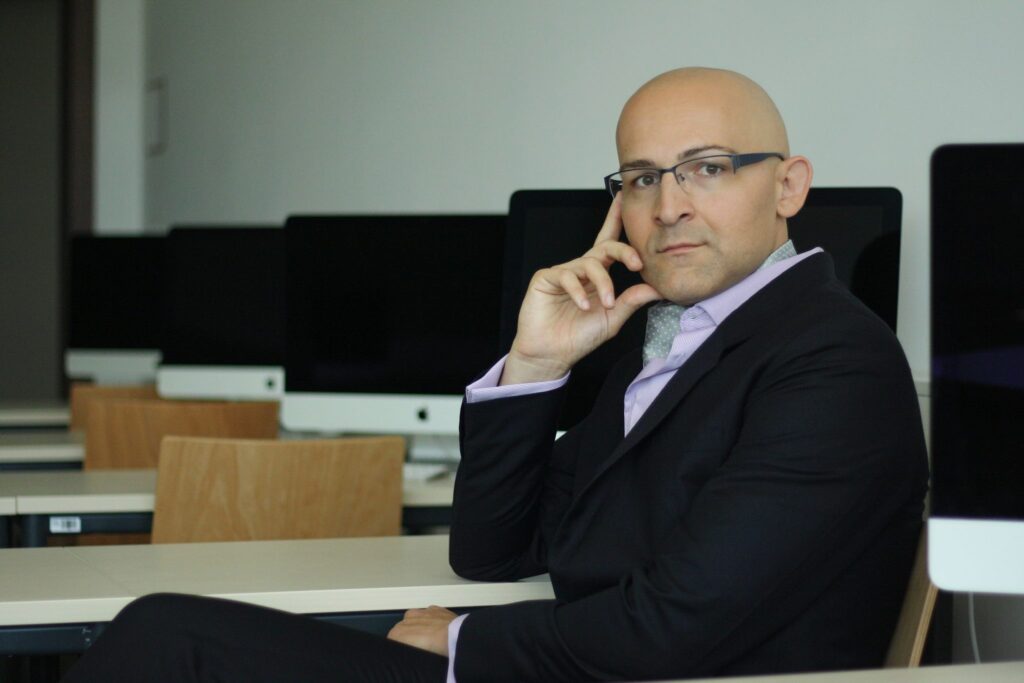The day after the failed vote of no confidence, an article by the journalist of the Politico media outlet, Lili Bayer, was published. Since she described the journalistic landscape in a country that is a member state of the European Union as oppressed and stated that Prime Minister Janez Janša is the person who is allegedly responsible for the attacks on the media, it is not surprising that the article has caused quite a stir in the general public. “The picture that she painted of the state of media freedom in Slovenia is completely wrong. The reason why it is so wrong is that she did not do her journalistic work correctly,” the dean of the School of Advanced Social Studies in Nova Gorica, Borut Rončević, Ph.D., pointed out and added that he would not even call this journalistic work, but rather activism and political agitation.
In a conversation with Nova24TV, sociologist dr. Borut Rončević problematised the fact that Lili Bayer only spoke to a small number of people, whom she did not even list as her sources. Thus, according to Rončević, it is not even known who they are and if they are impartial and credible.
“She did not take any systematic records into account, so no relevant scientific research or reviews of the media space in Slovenia. She also did not take anecdotal records or individual cases into account. For example, how many journalists were persecuted in one way or another? How many have suffered sanctions in connection with their work? So, how many of those journalists who wrote critically about the politicians from the left part of the political space, and vice versa.” According to Rončević, most journalists who have suffered any consequences for their work are journalists who have reported critically on the left-wing politicians in Slovenia.
The article is distinctly untrue and even biased
“It is true that some journalists from the other side are complaining; however, their complaints have no grounds. Because of this, it is not surprising that her text was extremely untrue and even biased,” he pointed out, adding that it really is not a good example of journalistic work. Given that the responses of government representatives show that they responded to her questions, it is that much worse, according to Rončević, that she did, in fact, obtain responses from the opposite side but decided to not even mention them in the article. “I would not even call this journalistic work; this is activism and political agitation,” he pointed out.
After the Government Communication Office refused to pay the Slovenian Press Agency’s January claim because it has still not met its contractual obligations, Bayer decided to get involved in the story and problematised it via Twitter. The Government Communication Office has fulfilled all of the obligations it has to the Slovenian Press Agency, but Veselinovič has still not sent them the required documents. Apparently, Bayer thinks that any matter can be problematised as long as it helps support her story of the “oppression” of the Slovenian media. In regard to this, Rončević emphasised that he was really looking forward to the day when Bayer would start checking facts. “She clearly does not understand that a legal basis has to exist for a payment. Public higher education institutions also sign a contract with the ministry so that the ministry can pay them the funds. Every official employed in the public sector also has to sign an employment contract in order to get paid on the basis of the contract.”
Rončević emphasised that just as the journalists have the right to criticise politicians, politicians also have the right to criticise the work of the journalists. “This is about democracy, not a threat to democracy,” he made it clear. He also pointed out on Twitter that as an academic, he will always defend the right of people, politicians or not, to voice their opinions, as long as they do not incite hatred and violence. “Anyone who is against this is a fascist,” he wrote.
Apparently, this upset Bayer’s great supporter, Lucas Guttenberg, an academic from the Jacques Delors Centre – so much so that he decided to block Rončević. Given that they recently got involved in a lively debate, Guttenberg’s action undoubtedly shows that he is clearly not interested in a serious debate. It is obvious that some simply do not understand that the Slovenian media landscape is unique. According to Rončević, a recent analysis of the Slovenian media coverage showed that “80 percent of the media are predominantly anti-governmental, 18 percent are neutral, and only 2 percent are pro-government. … Not a lot of oppression going on here,” Rončević concluded.
Nina Žoher


